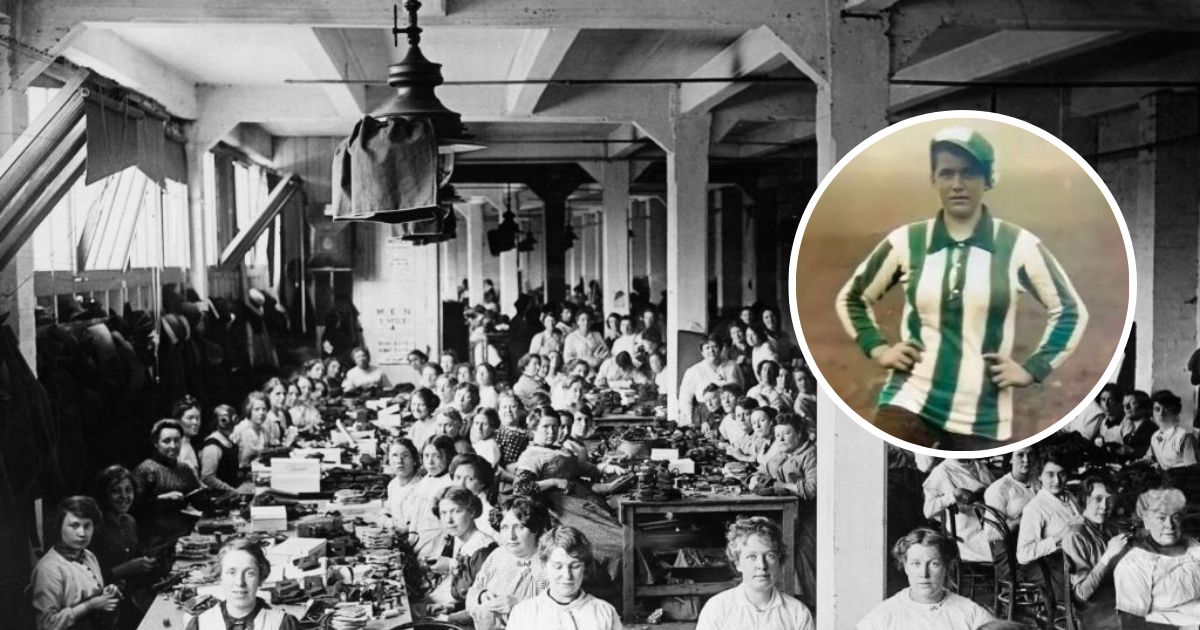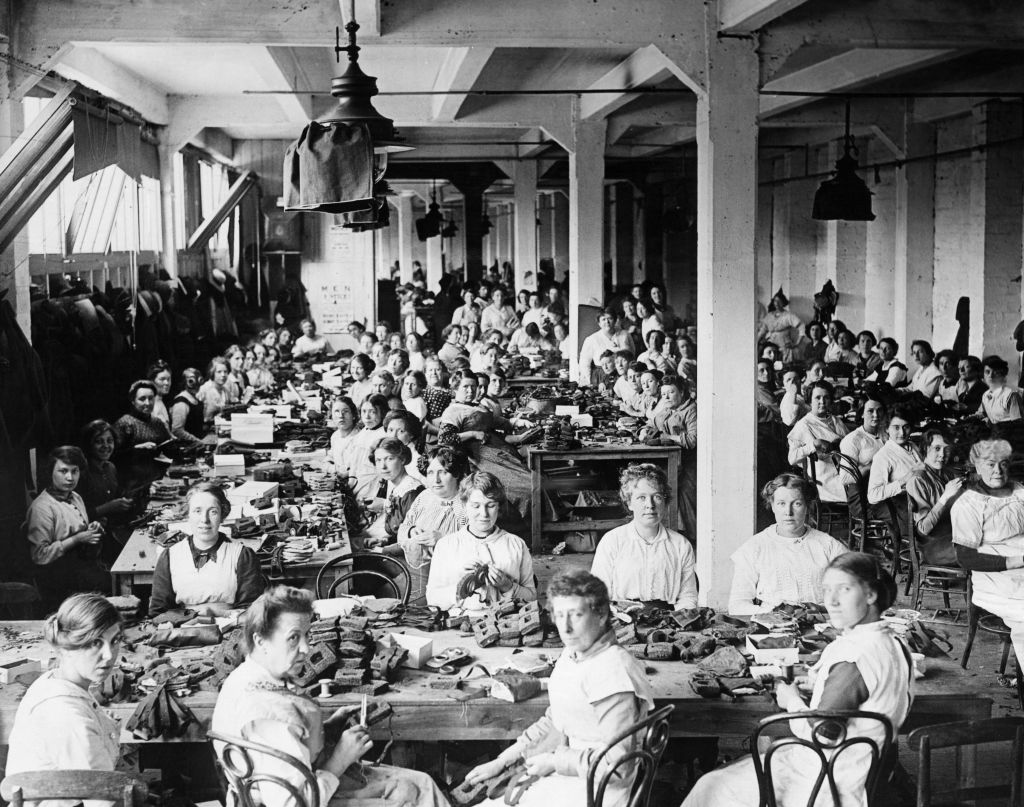
In 1916 conscription saw hundreds of thousands of British men leave the country and head into battle. But from this emerged a tale that would have Joey Barton reeling.
The knock-on impact of thousands of men leaving their homes and towns was women flooding into munitions factories and dockyards to plug the gap left by conscripted men and maintain the momentum of the war effort on home soil.
The spirit these women showed, many of whom contributed by working 60-hour weeks, was nothing short of incredible. The effort extended beyond the factory walls and shipyards too.
In a bid to raise money for orphans, widows and wounded soldiers, some women took an unconventional step (particularly for the era) to form football teams. It happened throughout the country, though it was particularly prevalent in the North.
Men’s professional football was suspended for four years from 1915 leaving a large hole in peoples’ lives. No club south of Birmingham had won the Football League Division One since its inception in 1888 so football’s popularity in this part of the country would have been significant.

Women began forming teams and playing friendly matches. Crowds swelled, and local stars began to emerge.
To satisfy this new-found interest in women’s football, a competition in the North East formed: the Alfred Wood Trophy, also known as the Munitions Cup. Teams from Teesside and North Yorkshire battled it out to find their champion. The same happened further north in Tyneside and Northumberland.
Blyth Spartan's Munitions ladies and Bolckow, Vaughan & Co ladies emerged as the best teams from both regions and met at St. James’ Park for a final in 1918. A crowd estimated at between 15,000 and 18,000 watched an entertaining stalemate, with Blyth’s Bella Reay hitting the crossbar and Bolckow missing a penalty.
A replay at Middlesbrough’s Ayresome Park saw Blyth triumph 5-0 with Reay netting a hat-trick. A 15-year-old called May Lyons from Jarrow scored one of the other goals. Across the 30-match series, Bella Reay hit 133 goals, 4.33 per game, a remarkable number by anyone’s standards.

Bella’s emergence should’ve been a watershed moment for women, and for a brief spell it looked like it might be. By 1921 there were around 150 women’s football clubs around the country with some matches drawing as many as 45,000 fans. The future looked bright.
However, when war ended, munitions factories closed, men returned and most women returned to the domestic life they knew before. The ‘Restoration of Pre-War Practices Act 1919’ failed to recognise women's contributions in fighting the war.
It forced women out of industry and then out of football as questions arose over whether football was damaging women’s health. Dr Mary Scharlieb of Harley Street for example described it as the “most unsuitable game, too much for a women’s physical frame”.
By the end of 1921, the FA met at its headquarters in London and announced a total ban on the women’s game being played at professional grounds and pitches stating: “the game of football is quite unsuitable for females and ought not to be encouraged.”
The ban meant the women’s game was limited to public parks for nearly 50 years. While some women may have welcomed a return to ‘normality’ in their working lives, banning them entirely from playing at football grounds and pitches affiliated to the FA was an unnecessary, misogynistic move.

Health concerns could have been a smokescreen for more political concerns around the ban, however. A Channel 4 documentary in 2017 suggested fundraising activities were a factor that contributed to the ban.
During war, these funds were for soldiers, orphans and widows, but post-war funds were rerouted to striking workers. With revolution in the air such fundraising could’ve have been a concern for the president of the FA at the time, an old Etonian called Lord Kinnaird who was himself a leading footballer, who played in nine FA Cup finals and was considered by some journalists as the first football star.
Whatever the real reason, societal change in the 1960s placed the FA under pressure to lift the ban, and by late December 1969, some of the FA Committee agreed: “ladies’ football should no longer be considered to be classed as unaffiliated football”.
On 19 January 1970, the FA Council finally voted to rescind the 1921 resolution. Women could now play on grounds affiliated to the FA and registered referees could officiate women’s matches.
It’s regrettable that momentum and enthusiasm for women’s football, generated by spirited women during World War I, was halted overnight in 1921. Almost 50 years of potential progress was lost and it has taken over 100 years for the women’s game to recover.
A theatre production covering the story of Bella Reay kicks of at The Bread & Roses theatre in Clapham this week, running from 22-24 April, with two days of shows also taking place at Theatre Royal in Newcastle upon Tyne on 27 and 28 April.
More stories
The birth of the replica football shirt, 50 years on
What happened to football on Christmas Day? The lost history of a Victorian tradition
The man who stole the FA Cup – how a kleptomaniac pensioner ended the 63-year mystery







